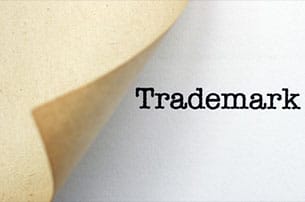Resolving Trade Dress Issues
A Coca-Cola contoured bottle. The Maker’s Mark dripping wax seal. The Globefill skull-shaped vodka bottle for Crystal Head Vodka. These are all examples of trade dress. Typically, if your company owns a product or franchise, you will also want to protect the company’s brand. A brand is not only associated with a name or symbol, it also relates to the characteristics or appearance of the product, labels or packaging, known as trade dress.
At the law firm of Gabor & Marotta LLC, our Manhattan lawyers explain the process of registering trade dress. We can help you diligently prosecute your trade dress application, as well as litigate against unfair competition. Call our Manhattan office at 646-835-0762 or our Staten Island office at 646-835-0762 .
Trade Dress Registration
Trade dress is a business or product’s “overall image and appearance.” Trade dress may include features such as size, shape, color or color combinations, texture, graphics, or even particular sales techniques. Two Pesos, Inc. v. Taco Cabana, Inc., 505 U.S. 763, 765 n.1 (1992). Trade dress is a broad concept, which includes product packaging and product design/configurations. Wal-Mart Stores, Inc. v. Samara Bros., Inc., 529 U.S. 205, 209-10 (2000).
The trade dress application process is similar to the process for registering a trademark brand name. Our attorneys work directly with clients to register and protect trade dress, whether it is the unique packaging of a liquor bottle or the decor, menu and style of a restaurant.
How To Protect Trade Dress
Because the U.S. trade dress and trademark registration application is online, individuals often try to apply on their own. However, the application can be very complicated and one mistake can be very costly to your company. Our attorneys understand the specific rules associated with trade dress.
Trade Dress Must Be Distinctive And Nonfunctional
Generally, for trade dress to be protected, two requirements must be met:
- Trade dress must be distinctive; and
- Trade dress must be nonfunctional
Trade dress meets the distinctive requirement if it is inherently distinctive, or if it has acquired distinctiveness through secondary meaning. Two Pesos, 505 U.S. at 769.
Trade dress is inherently distinctive if it is a design, shape or combination of elements so unique, unusual or unexpected that it is automatically perceived by consumers as an indicia of origin. Secondary meaning is when the public associates a trademark or trade dress with a single source or producer of goods or services, rather than just the product itself.
Product design trade dress is never inherently distinctive, and therefore requires proof of secondary meaning. Wal-Mart Stores, Inc., 529 Ll.S, at 214-16.
Product packaging trade dress, on the other hand, may be inherently distinctive, if for example, it is unique or arbitrary packaging and serves to identify your company.
Is It Functional Or Arbitrary (Not Functional)?
A product feature is functional, and not subject to protection, “if it is essential to the use or purpose of the article or if it affects the cost or quality of the article.” Qualitex ‘ v. Jacobson Prods., Co., 514 U.S. 159, 165 (1995).
You need an experienced lawyer who understands trademark and trade dress law and is able to demonstrate that your product’s trade dress is distinctive or has secondary meaning. If your trade dress application is denied by USPTO, you have six months to respond. Our lawyers can represent you in any appeal with the Trademark Trial and Appeal Board (TTAB).
Trade Dress, Colors, Slogans
Under certain circumstances, a company can also register a federal trademark for a slogan, or even a color, if it is nonfunctional and serves to identify the company. For example, it has been held that pink is a trademark of Owens Corning for fiberglass insulation, because pink has no functional purpose and is a totally arbitrary choice of color for fiberglass that consumers perceive as an indication of a specific brand of fiberglass.
Litigating Unfair Competition Claims
We also handle unfair competition cases. Unfair competition refers to the use of deceptive practices in business, and often involves the theft of trademark or distinctive slogans. For example, a competitor may use deceptive advertising: marketing a trademark, slogan or trade dress that is the same as yours and claiming to be the original.
Our lawyers are knowledgeable in unfair competition law. If you believe a competitor is infringing upon trade dress, or misappropriating your proprietary marketing ideas, we can help you assert an unfair competition claim to protect your brand’s unique-looking products or packaging.
Contact Our Lawyers
If you believe a competitor is engaging in unfair competition or for more information about registering a trade dress, speak with us. Contact our New York attorneys online. You may also call our Manhattan office at 212-349-1200 or our Staten Island office at 718-390-0555.


